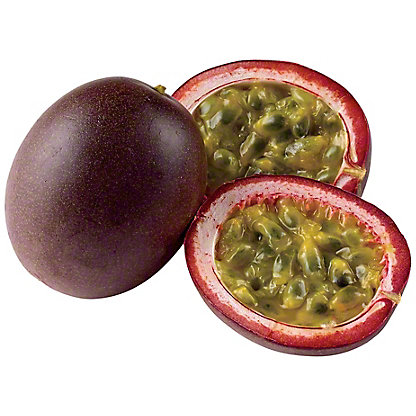Passion fruit’s star has been on the rise in recent years due to the fruit’s distinctive flavor and many health benefits. The top three countries producing passion fruit are Brazil, Colombia, and Peru, according to kau.in.
The global passion fruit market is experiencing growth, with sales expected to increase at a compound annual growth rate (CAGR) of 5.9% in Brazil and 7% in Mexico.
As awareness of passion fruit’s health benefits grows, so too does its popularity. Vitamin C, vitamin A, potassium, and iron are just some of the vitamins and minerals that you may get in passion fruit.
It’s high fiber and antioxidant content also helps keep things moving along in the digestive system and keeps the immune system strong. Furthermore, passion fruit’s high potassium content and other bioactive elements may help reduce blood pressure.
Passion fruit is an excellent addition to your diet, both for its deliciously tart taste and its many health advantages. Here, we’ll go deeper into the passion fruit’s health advantages and offer some easy suggestions for including it into your daily diet.
What is Passion Fruit?

Tropical areas with high humidity and mild temperatures are ideal for growing passion fruit, also known as Granadilla. Being a member of the Passiflora family, passion fruit is available in numerous colours and variants, the most common of which are purple and yellow. The fruit’s exterior is harsh and rigid, while the inside is soft and delicious with edible seeds.
While originally from South America, the passion fruit plant may now be found in many other tropical climates, including Asia, Australia, and even parts of Africa. The fruit is picked when it is at its most flavorful and ripe in the summer and fall.
Fun Facts
Passionfruit is a vine-grown berry. It is native to South America but grown worldwide in tropical and subtropical climates.
The passion fruit’s skin, which can be either dark purple or bright yellow, is smooth and durable. Soft, gelatinous pulp can be found inside the shell, and its flavour is sweet and tangy, typically compared to that of a pineapple, mango, or guava.
Little, black seeds can be found throughout the pulp; they’re delicious and add a delightful crunch.
The nutritional value and health advantages of Granadilla are extensive. It’s high vitamin C content aids in illness prevention by keeping the immune system strong. In addition to the eye-healthy vitamin A, it also has the digestive-helping fibre and satiety-inducing magnesium that are beneficial to overall health.
Passion fruit is beneficial for your health in many ways, and its high levels of antioxidants, such as flavonoids and carotenoids, can help protect your cells from damage and lower your risk of chronic diseases like cancer and heart disease.
The fruit also has trace levels of minerals the body needs to operate properly, such as iron, potassium, and magnesium.
What are the Health Benefits of Passion Fruit?
The health advantages of passion fruit stem from the fruit’s high nutrient density. What follows is a list of how passion fruit can help your body:
1. High in Antioxidants
The antioxidants vitamin C, flavonoids, and carotenoids are all found in high concentrations in passion fruit. These antioxidants serve to neutralize the free radicals that are found in the body, which are known to be a factor in the development of chronic diseases as well as the destruction of cells. Sources: [1] [2] [3]
2. Promotes Digestion
As a result of its high fibre content, passion fruit is known to facilitate digestion and protect against constipation. Enzymes, such as bromelain and papain, are found within the fruit, and they are able to facilitate the breakdown of proteins.
3. Boosts Immunity
Because it contains a high concentration of vitamin C, Granadilla can assist to strengthen the immune system and provide defense against various diseases and infections.
Fun Facts
Passion fruits seeds can be eaten alone or sprinkled on salads and desserts.
4. Lowers Blood Pressure
Because it is high in potassium, passion fruit can help to reduce the risk of cardiovascular disease and stroke, in addition to lowering blood pressure.
5. Supports Eye Health
The body transforms beta-carotene into vitamin A, so eating passion fruit is an excellent way to get your daily dose. Vitamin A is absolutely necessary for protecting one’s vision from age-related macular degeneration and ensuring that one’s eyes remain in good health.
6. Anti-Inflammatory Properties
The elements in passion fruit can help with inflammation, so it’s good for things like arthritis and other ailments.
How Does Passion Fruit Promote Digestion?
Passion fruit promotes digestion through various mechanisms, making it beneficial for overall gut health. Here are some ways in which passion fruit supports digestion:
- Dietary Fiber: Passion fruit is rich in dietary fiber, which aids in digestion by regulating the digestive system and promoting gut health. Fiber helps prevent constipation and bowel disorders, ensuring smooth bowel movements and overall digestive well-being.
- High Water Content: Passion fruit has a high water content, which is essential for digestion. Adequate hydration supports the digestive process, helps in nutrient absorption, and ensures the smooth movement of food through the digestive tract
- Low Glycemic Index: Passion fruit has a low glycemic index value, meaning it does not cause a rapid increase in blood sugar levels after consumption. This makes it a suitable option for individuals with diabetes and supports stable blood sugar levels.
- Enzymes: Passion fruit contains enzymes like bromelain and papain that aid in the breakdown of proteins, facilitating digestion and nutrient absorption.
Incorporating passion fruit into your diet can be a flavorful way to improve digestion, prevent constipation, and support overall gut health due to its fiber content, hydration benefits, low glycemic index, and enzyme content.
Fun Facts
Traditional medicine has treated stomach disorders, anxiety, and insomnia with passionfruit for generations.
How Does Passion Fruit Boost Immunity?

Passion fruit is an immunity-enhancing tropical fruit that is rich in nutrients and antioxidants. Some of the ways in which passion fruit can aid in maintaining a strong immune system are as follows.
1. Vitamin C
Vitamin C, a potent antioxidant that is crucial to a strong immune system, can be found in abundance in Granadilla. Damage from free radicals, which can be prevented by vitamin C’s antioxidant properties, can lower immunity and make you more susceptible to illness. White blood cell production, which helps fight off infections, is also boosted.
2. Carotenoids
pigments called carotenoids give fruits and vegetables their vibrant hues; passion fruit is particularly rich in these compounds. Carotenoids can help prevent cell damage and lower the risk of chronic diseases due to their antioxidant effects. For example, beta-carotene, a type of carotenoid, can be transformed into vitamin A, a crucial nutrient for immune system health.
3. Polyphenols
There are plant components called polyphenols in passion fruit, and they have been demonstrated to have immune-enhancing qualities. By lowering inflammation, polyphenols support a robust immune system.
4. Fiber
Passion fruit is rich in fibre, which promotes a balanced microbiota in the digestive tract. Because it houses billions of bacteria that aid in regulating immune system activity, the gut microbiome is crucial to immune system function.
5. Iron
Little levels of iron, which is necessary for proper immune system function, can be found in Granadilla. Iron aids in the transfer of oxygen to cells all over the body, including the immunological cells that require oxygen to do their job.
Can Passion Fruit Help to Lower Blood Pressure?
Because of its high vitamin and bioactive chemical content, Granadilla has been linked to a reduction in blood pressure.
Passion fruit’s potassium may reduce blood pressure. Potassium regulates blood pressure and is vital. It promotes vasodilation and reduces blood vessel constriction to lower blood pressure caused by diet salt. One medium-sized Granadilla provides 14% of the daily potassium requirement at 500 mg.
Passion fruit includes potassium, flavonoids, fibre, and other blood pressure-lowering substances. Flavonoids are plant-based antioxidants and anti-inflammatories. They lower blood pressure and improve blood vessel function. Passion fruit seeds and skin contain the most flavonoids.
Finally, Granadilla includes fibre, which lowers blood pressure. Fiber lowers cholesterol and promotes blood vessel health, improving heart health.
Passion fruit may help decrease blood pressure, but further research is needed. Granadilla should not substitute blood pressure medicine without medical advice.
How Can You Incorporate Passion Fruit Into Your Diet?
You may use passion fruit in many different kinds of recipes and snacks. Some easy methods to incorporate this fruit into your diet are as follows:
- Eat it fresh: Consuming Granadilla in its fresh form is one of the best ways to appreciate its flavour. Split the fruit in half, remove the pulp with a spoon, and enjoy on its own or with other fruits.
- Add it to smoothies: Smoothies with passion fruit are delicious and can be made with a variety of other fruits. Adding yoghurt or milk will make it creamier.
- Make a fruit salad: When combined with other tropical fruits, Granadilla brings out their best flavours. Make a refreshing snack or dessert by cutting the fruits into little pieces, mixing them together, and eating them.
- Top off yogurt or oatmeal: Passion fruit pulp is a healthy and delicious addition to plain yoghurt or cereal.
- Use it in dressings and sauces: To provide a sour note to savoury recipes, passion fruit can be puréed and used to produce sauces and dressings. In a pinch, you may use Granadilla pulp as a marinade for grilled meats or shellfish by combining it with olive oil, honey, and vinegar.
- Bake with it: The tart flavour of passion fruit can be used to enhance the sweetness of baked goods. Use the Granadilla pulp as a glaze or frosting ingredient.












